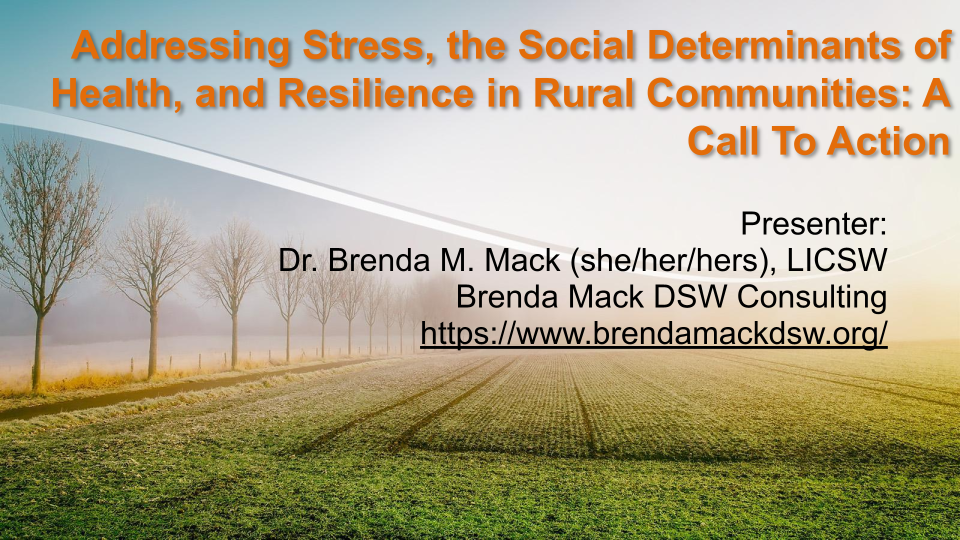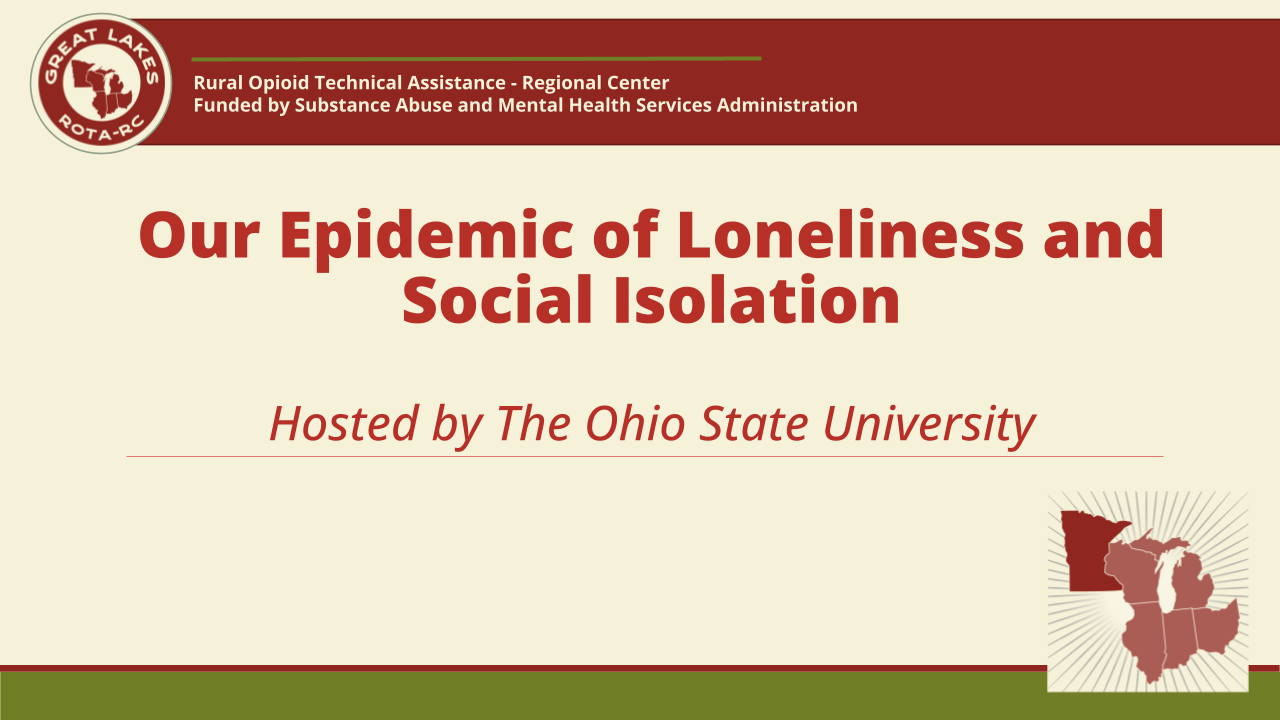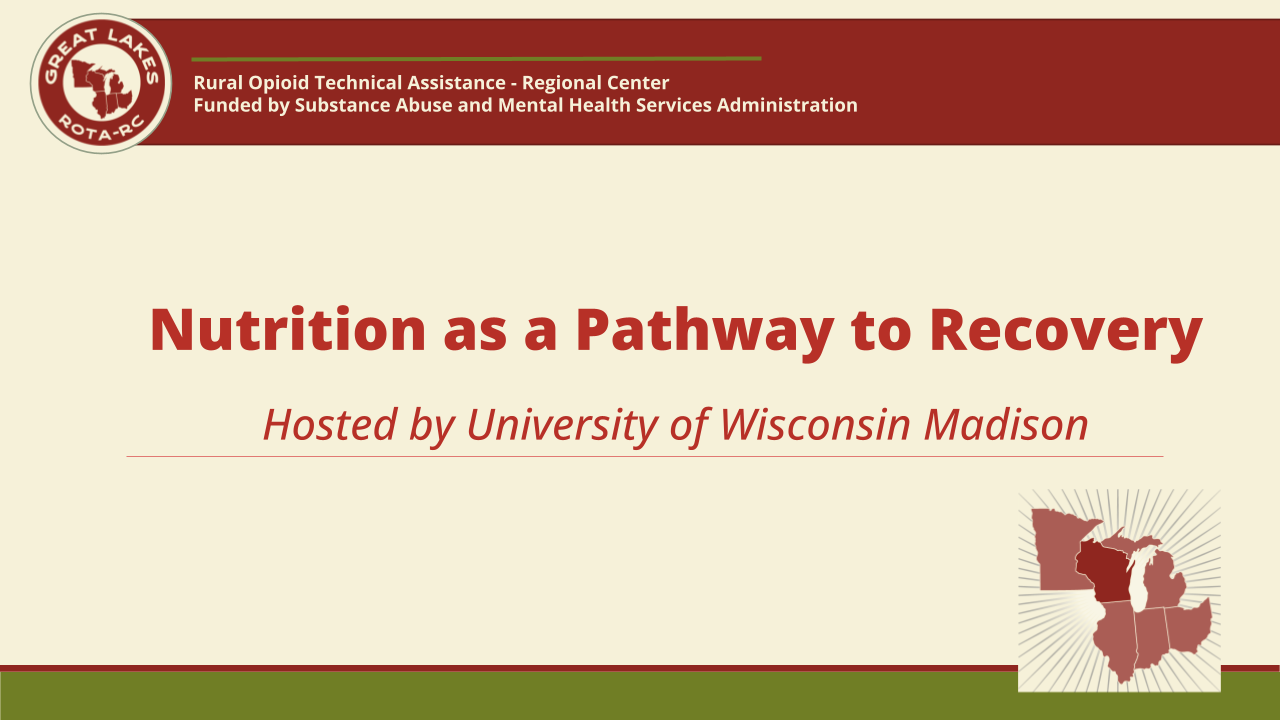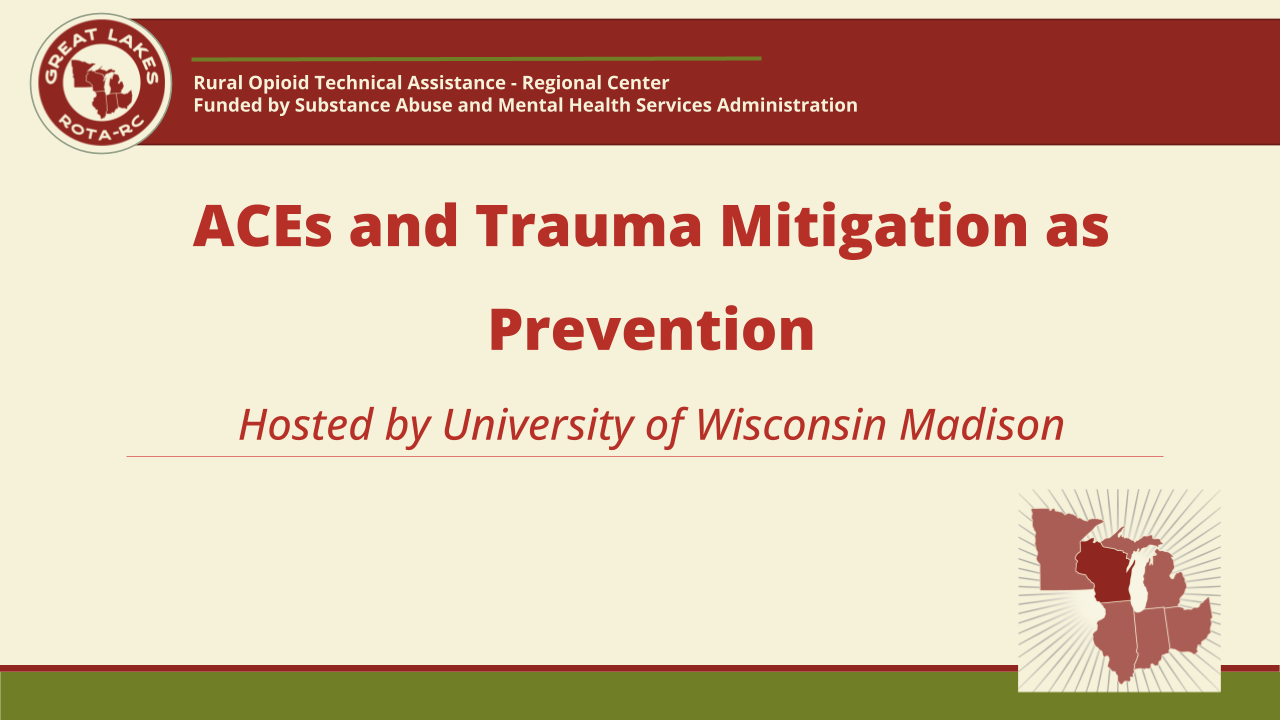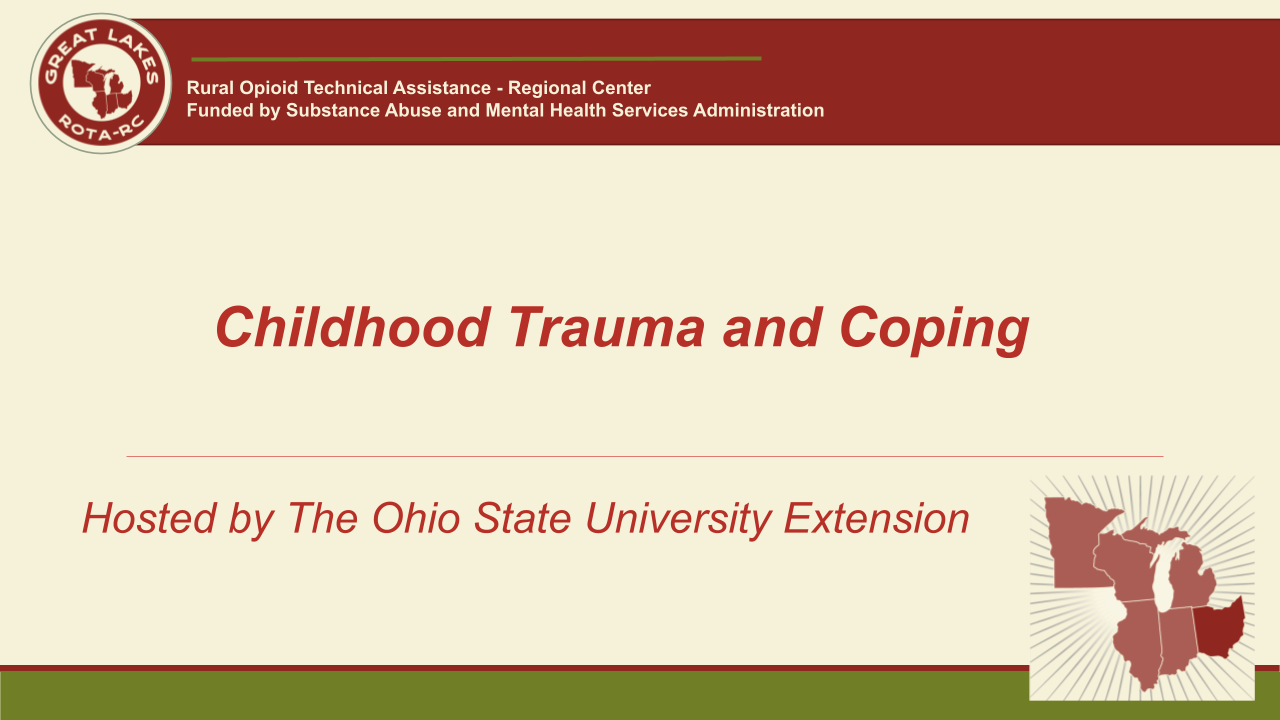Prevention Education

ROTA-RC PAST EVENTS
Event Recordings & Resources
Prevention is the foundation of healthier individuals and stronger communities. This section provides evidence-based education on reducing the risks of substance use disorders (SUD) and mental health challenges before they reach crisis.
Table of Contents
Preventing Substance Use Among Young Adults with Disabilities
Individuals with disabilities who experience substance use disorders often face distinct barriers that require tailored strategies to support their recovery. A comprehensive approach should address accessibility, healthcare coordination, social stigma, and individualized treatment options.
Resources
Published: Wednesday, July 16, 2025
Attendance/ Credit Information
An Introduction to a Trauma Informed Approach
A Trauma Informed Approach can strengthen your existing programming and build stronger community relationships. Join us for an overview of Trauma Informed Approaches.
Resources
Published: Wednesday, June 11, 2025
Attendance/ Credit Information
Widening the aperture: the Swiss Cheese Model for opioid policy
This session introduces a comprehensive framework for addressing the opioid crisis through the lens of the Swiss Cheese Model. Drawing parallels from safety system’s theory, Jonathan Stoltman will explain how this approach recognizes that no single intervention is perfect—each has “holes” like Swiss cheese. However, when multiple strategies are layered together (e.g., prevention, harm reduction, treatment, and recovery), we can create a more effective and resilient policy response. Healthcare professionals and policymakers will gain valuable insights into how this new policy model can address the full spectrum of opioid-related challenges.
Resources
Integrating Farmer Needs Into Childcare Solutions
Learn about out the unique challenges farmers face in accessing affordable quality childcare. This interactive breakout session will include an overview of national USDA and CDC funded research findings examining how access to childcare and health insurance affects farm economic development, child farm safety, and farm family quality of life. We’ll discuss the types of solutions farmers identified, new tools to assist farmers and communities with childcare solutions, and collectively develop strategies you can use to effectively engage farmers and community members in developing childcare solutions.
Resources
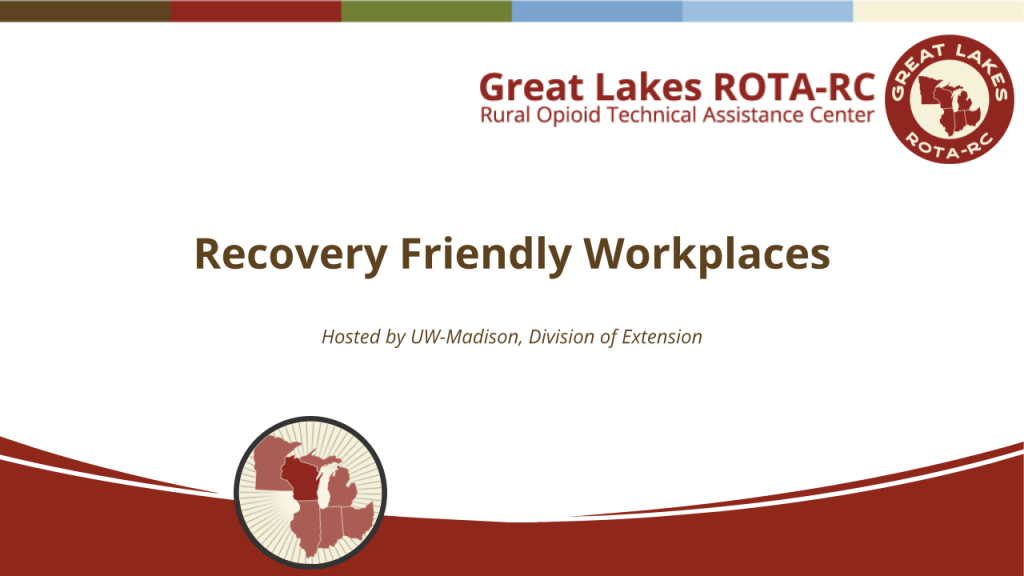
Published: Wednesday, February 6, 2025
Attendance/ Credit Information
Recovery Friendly Workplaces
Every day, individuals with substance use disorders and in recovery face challenges to maintain health and well-being. Community connections, including access to stable jobs, steady paychecks, and supportive workplaces help sustain recovery. Recovery Friendly Workplaces is an initiative for local employers to better understand policies and practices that can help make a work environment supportive. RFW offers evidence-based information for employers who want to make foundational changes to the way they hire, engage with, and support employees living with or seeking recovery from substance abuse.
Resources

Published: Wednesday, January 22, 2025
Attendance/ Credit Information
Mental Health Stigma in Rural Communities
Dairy Farmer and Rural Minds founder and director, Jeff Winton will highlight the challenges and differences around mental health for those living in rural America. He will address how mental health stigma affects rural communities and strategies to help address the stigma. Growing up on his family’s dairy farm, he discovered that many of the families in his small, 500-person town had a relative or friend living with some form of untreated mental illness—depression, bipolar disorder, anxiety, schizophrenia. But their struggle was met with silence. There were few or no resources in the community for treating them or conversations about helping them. The stigma attached to mental illness was palpable. After a personal tragedy in 2012, he founded Rural Minds, a nonprofit organization to serve as the informed voice for mental health in rural America, and to provide mental health information and resources.
Resources
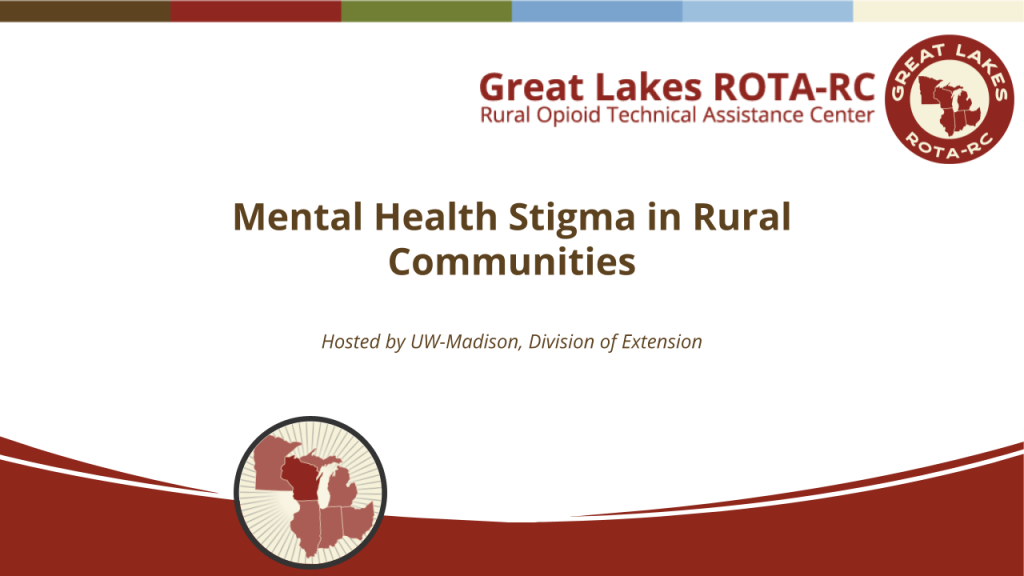
Published: Tuesday, October 8, 2024
Attendance/ Credit Information
Addressing the Stress, the Social Determinants of Health, and Resilience in Rural Communities: A Call to Action
This presentation will focus on understanding the signs, symptoms, facts, and figures related to stress and physical/mental/chemical health issues among individuals living in rural communities. Participants will learn about risk and protective factors and prevention and intervention strategies to increase emotional health and well-being.
Resources
Youth Mental Health & Social Success Series:
Digital Consent Rights for Youth with Disabilities (Part 1)
Foundations of Healthy Relationships: Helping Neurodivergent Teens and Young Adults Connect Safely
Objectives
- 1. Better understand your own values and how people find meaningful connections
- 2. Identify strategies to help neurodivergent teens to develop their own relationship and sexuality goals
- 3. Develop alternative strategies to behavioral support plans, to better address underlying mental health needs around risky dating and sexual behavior, by better understanding what drives the decision making
Resources
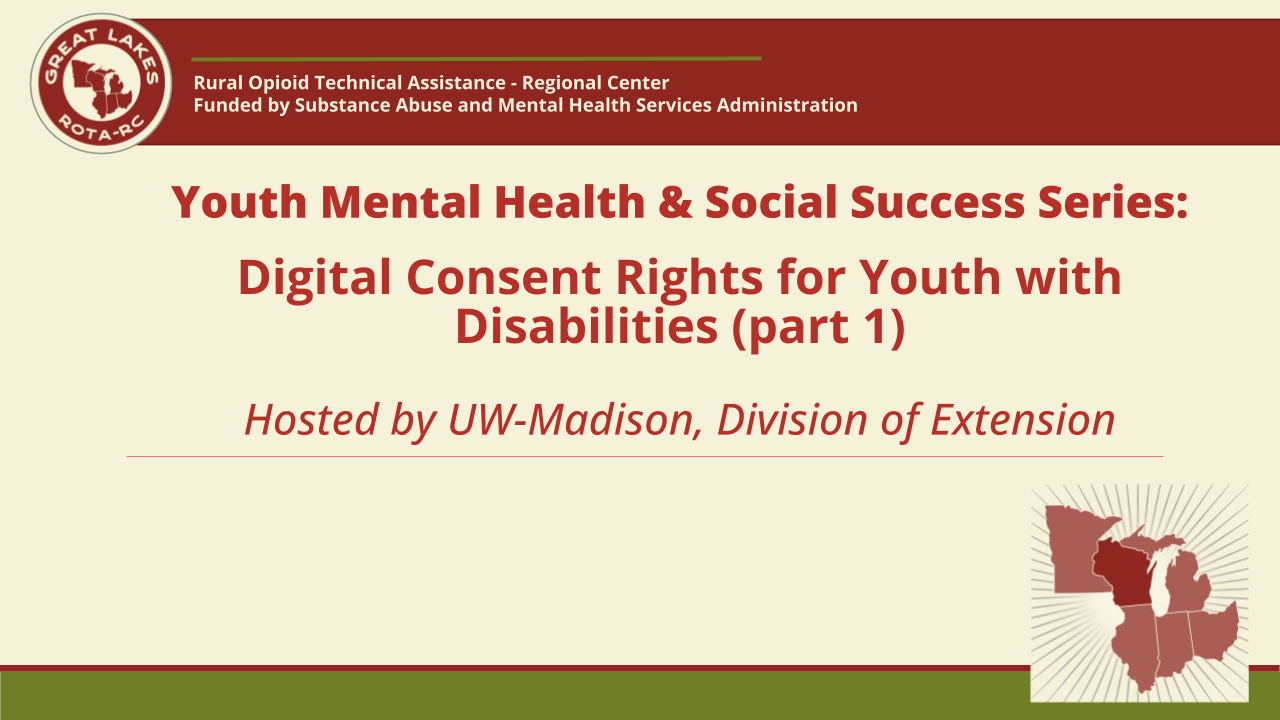
Published: Wednesday, February 21, 2024
Attendance/ Credit Information
Youth Mental Health & Social Success Series:
Digital Consent Rights for Youth with Disabilities (Part 2)
Online Dating, Sexting, and Porn, Oh My! Helping Neurodivergent Teens Connect Safely Online
Objectives:
- Learn how to identify the needs behind the behavior, to increase understanding and empathy and respond effectively
- Learn how to build trust with teens to increase safety
- Identify risk factors and “red flags” of online behavior, to better be able to support and educate neurodivergent teens on these topics
- Develop alternative strategies to behavioral modification in addressing risky online behavior
Resources
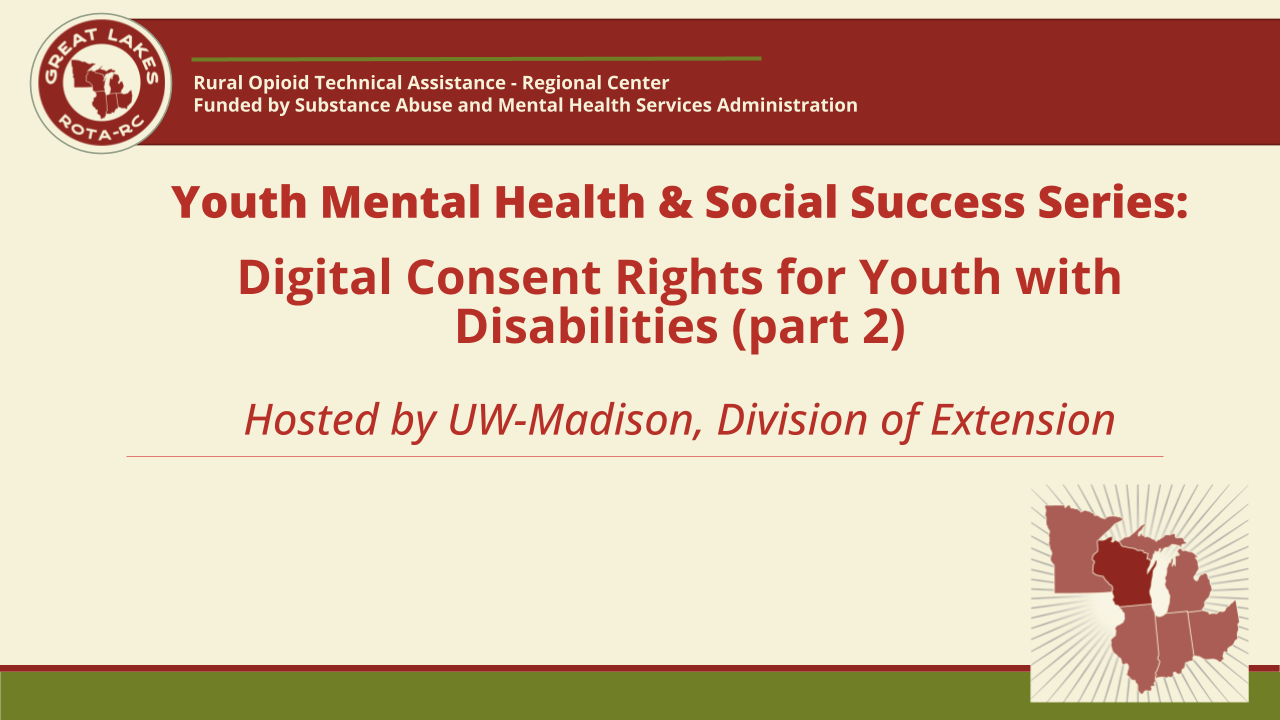
Published: Wednesday, March 20, 2024
Attendance/ Credit Information
Youth Mental Health & Social Success Series:
Five is Against the Law. Educating Social Skills Differences for Greater Long Term Success
There have been unprecedented advances in neuroscience related to the development of social behavior and emotional understanding. These advances include information about social awareness, social attention, self- awareness, emotion regulation, and self-control. Research not only documents that these skills are brain-based, but emerging educational research indicates that these skills can be taught. The workshop will include a brief overview of this research and focus on specific strategies used to teach these skills. The use of The Incredible 5-Point Scale will be discussed and demonstrated with an emphasis on the scales introduced in the workbook, A 5 is Against the Law! The information in this workshop should be a part of every team discussion for all individuals who exhibit upsetting, confusing, challenging or even violent behavior.
Resources
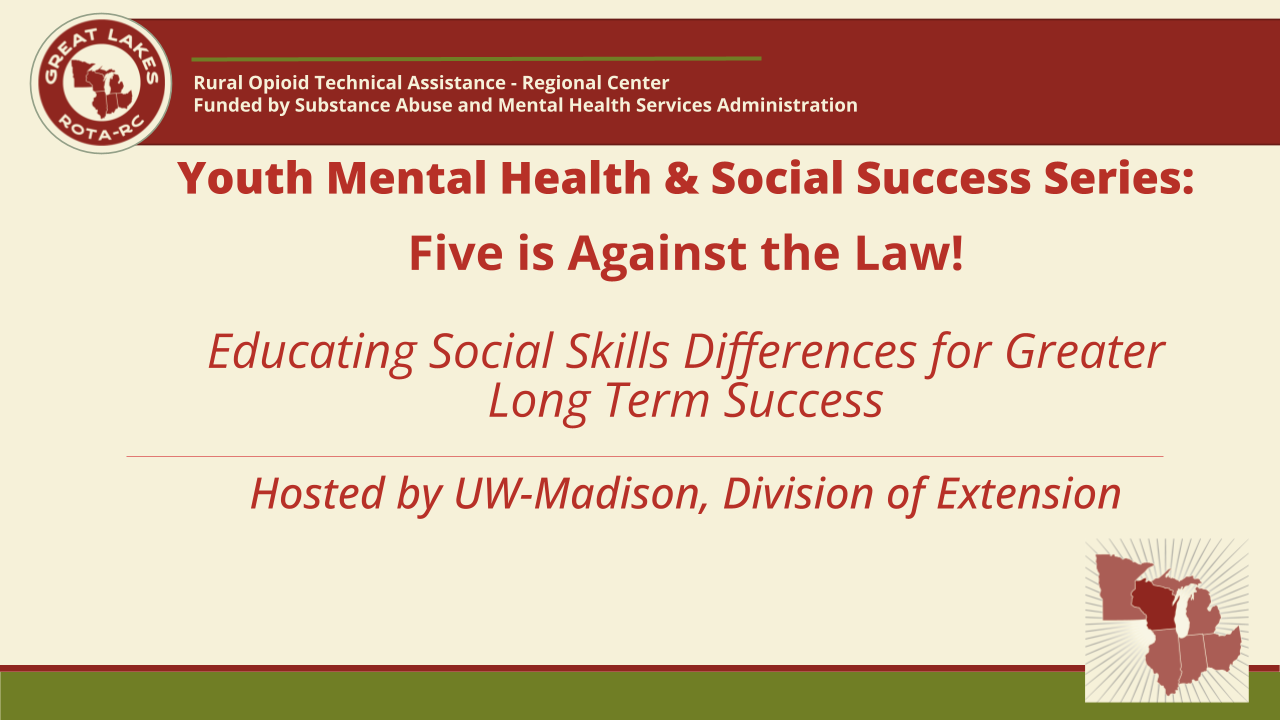
Published: Thursday, February 22, 2024
Attendance/ Credit Information
Youth Mental Health & Social Success Series:
The Social Stories Approach
Social Stories™ are a popular evidence-based strategy used worldwide to support autistic people and others with social communication differences. Grounded in the idea of Social Humility, they are a powerful tool to share information about an otherwise confounding aspect of the social world—in a safe, supportive, respectful, and positive way. This workshop will share the Social Stories definition and approach to help families and professionals working on behalf of autistic children, adolescents, and adults. Using several examples, participants will explore the principles of Social Stories to help them apply the approach to provide respectful and safe social support for the autistic people in their lives.
Resources
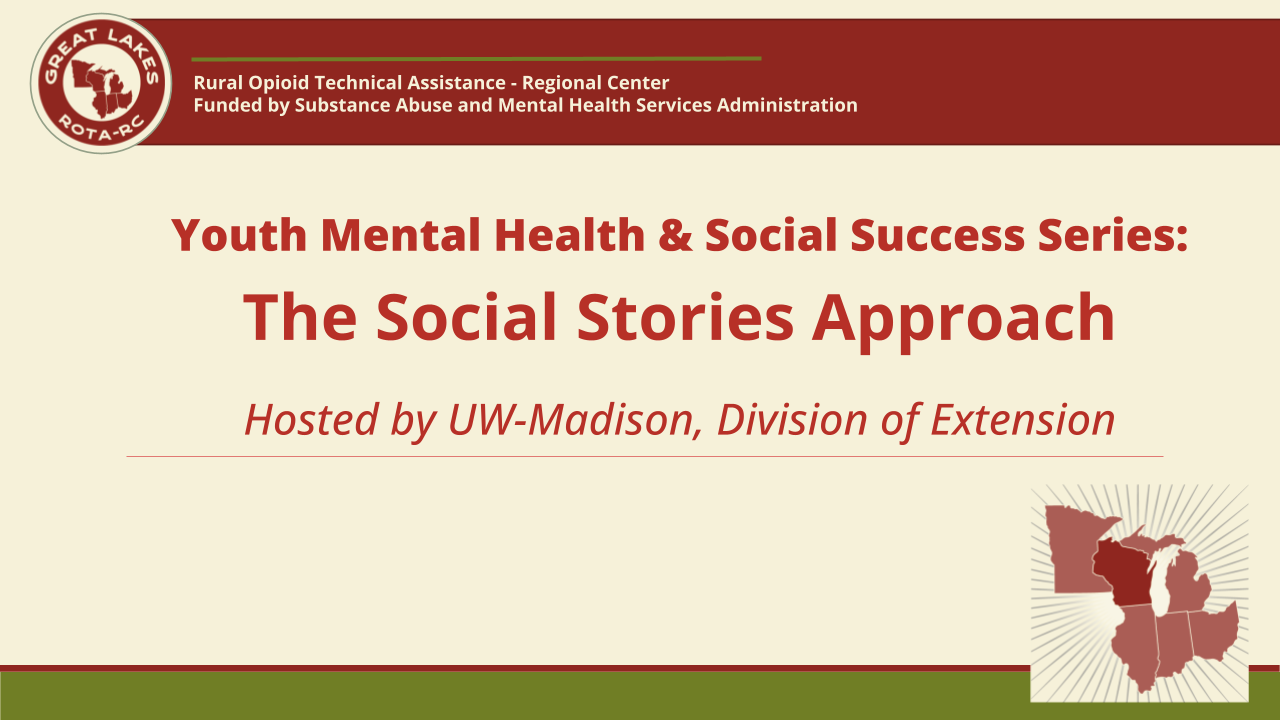
Published: Thursday, February 15, 2024
Attendance/ Credit Information
Youth Mental Health & Social Success Series:
Supporting Authentic Communication to Enhance Engagement
*This session included a 57 minute viewing of a video prior to the session presentation that was not recorded.
Following the viewing of “This Isn’t About Me, by Jordyn Zimmerman” we will further discuss simple ways to presume competence by providing and responding to all communication attempts to center autistic perspectives. Additionally, participants will reflect on their environments to ensure we can build skills without asking clients to mask.
Resources
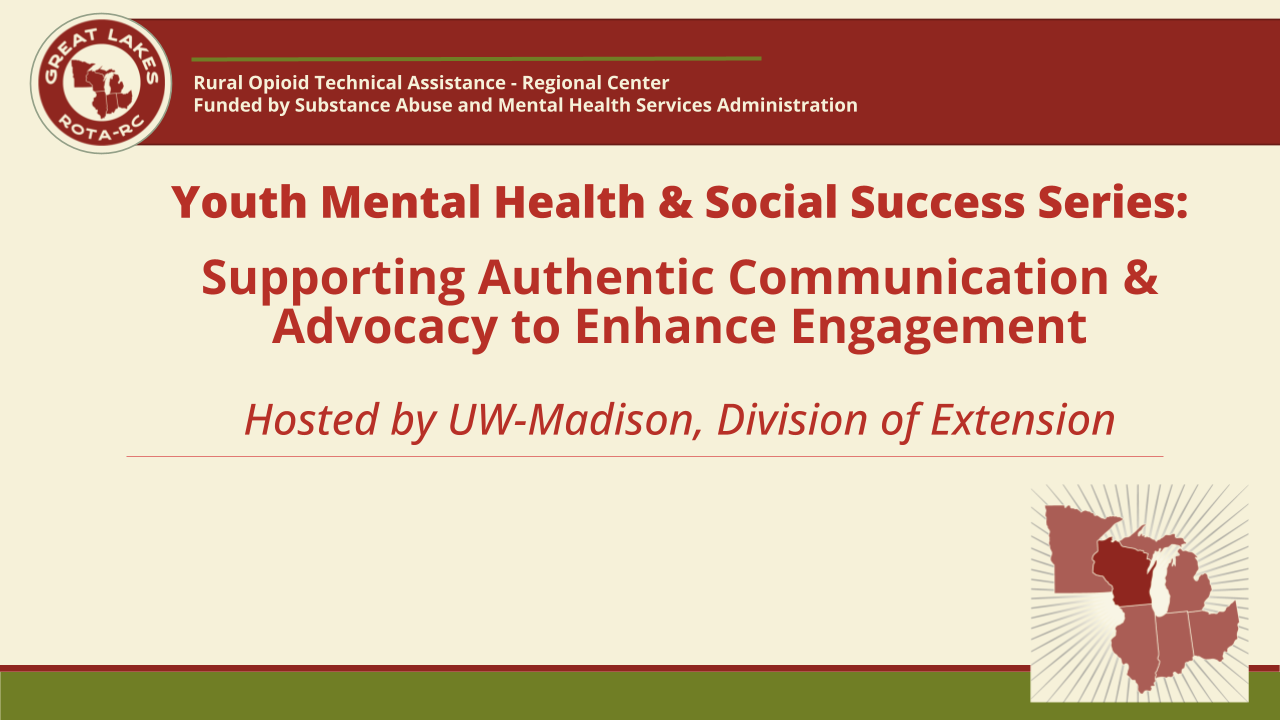
Published: Wednesday, February 7, 2024
Attendance/ Credit Information
Our Epidemic of Loneliness & Social Isolation
We live in the age of constant connection: People text and drive, frantically refresh their emails, and doom scroll social media. At any given time we have a half a dozen ways to contact each other. And yet, ironically, we have become the most disconnected society in history. In fact, rates of loneliness and social isolation have been trending lower for decades. The pandemic, of course, only exacerbated this problem. How lonely are we really? How did we get so lonely? And what can we do about it? In this session, we explore the Epidemic of Loneliness and Social Isolation. We answer these essential questions and more as we devise solutions to counteract loneliness.
Resources
Intersection of Diet, Nutrition, Physical Activity in Mental Health and Substance Use Recovery
In 2019, 1 in every 8 persons around the world were living with a mental disorder which rose significantly during the COVID‐19 pandemic. Methamphetamine and the opioid epidemic is at an all‐time high. While Extension has made some progress to address these issues, there is much more to be done, including through integrated health programming. This webinar will:
- Share strategies to equip professionals to integrate nutrition education programming to augment existing mental health treatment
- Provide SNAP-Ed educators with an understanding of the role that nutrition and physical activity play a role in substance use and mental health.
Resources
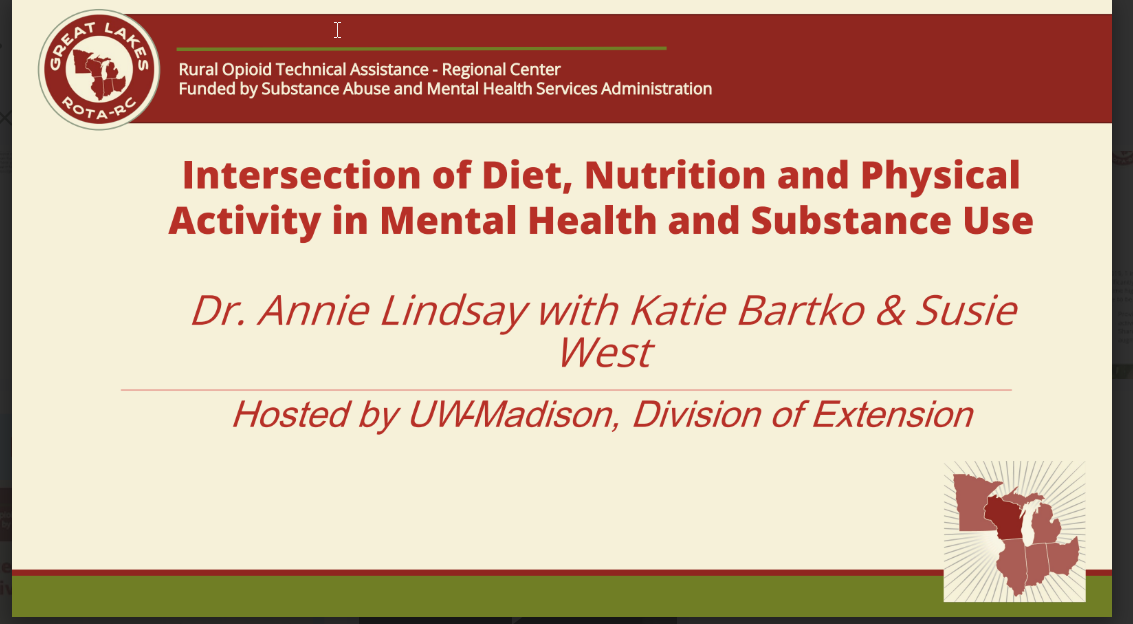
Published: Wednesday, January 26, 2024
Attendance/ Credit Information
Early Warning Signs and Suicide Prevention Best Practices in Children and Youth
2 part session
Attendees will learn strategies, interventions, accommodations and modifications to help students flourish emotionally and socially in school settings and in the community. The presenter will describe sings and symptoms of mental illness in children and youth, including developmental differences from infant and early childhood through transition age youth. Resources will be shared to help educators, families and other professionals connect children and youth with appropriate levels of care when needed. A comprehensive school wide toolkit for prevention, intervention and postvention of suicide and will be discussed and shared with participants.
Resources
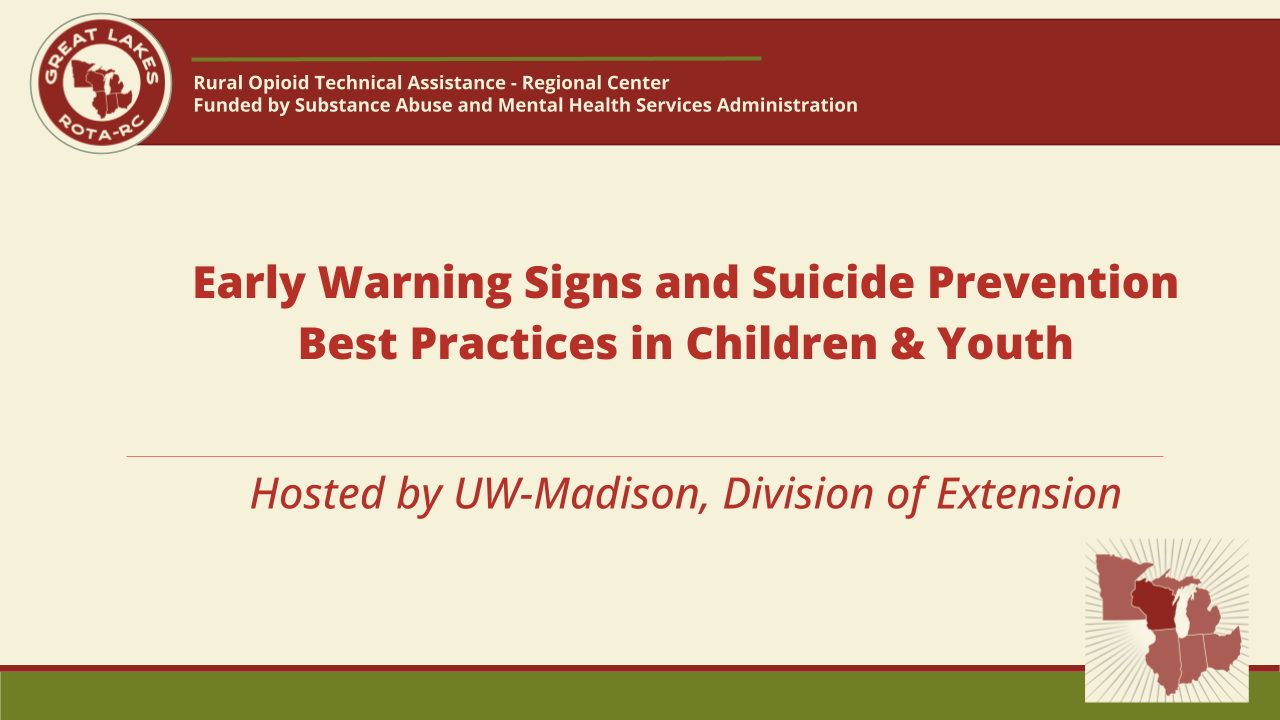
Published: Wednesday, January 24, 2024
Attendance/ Credit Information
A Closer Look at the Farm – Mental Health, Wellness and Risk
During this session participants will identify unique stressors, risks, and factors supporting farmers, family, rural life and agriculture workers.
Session Objectives
Identify opportunities for access to wellness services
- Indentify unique stressors impacting daily rural life, work/life balance and agriculture
- Assess impact of stressors on daily life, morale and job satisfaction for agriculture workers, familes and communities
- Assess the impact of uncertainty as related to aspects of farming and the business of agriculture
Resources
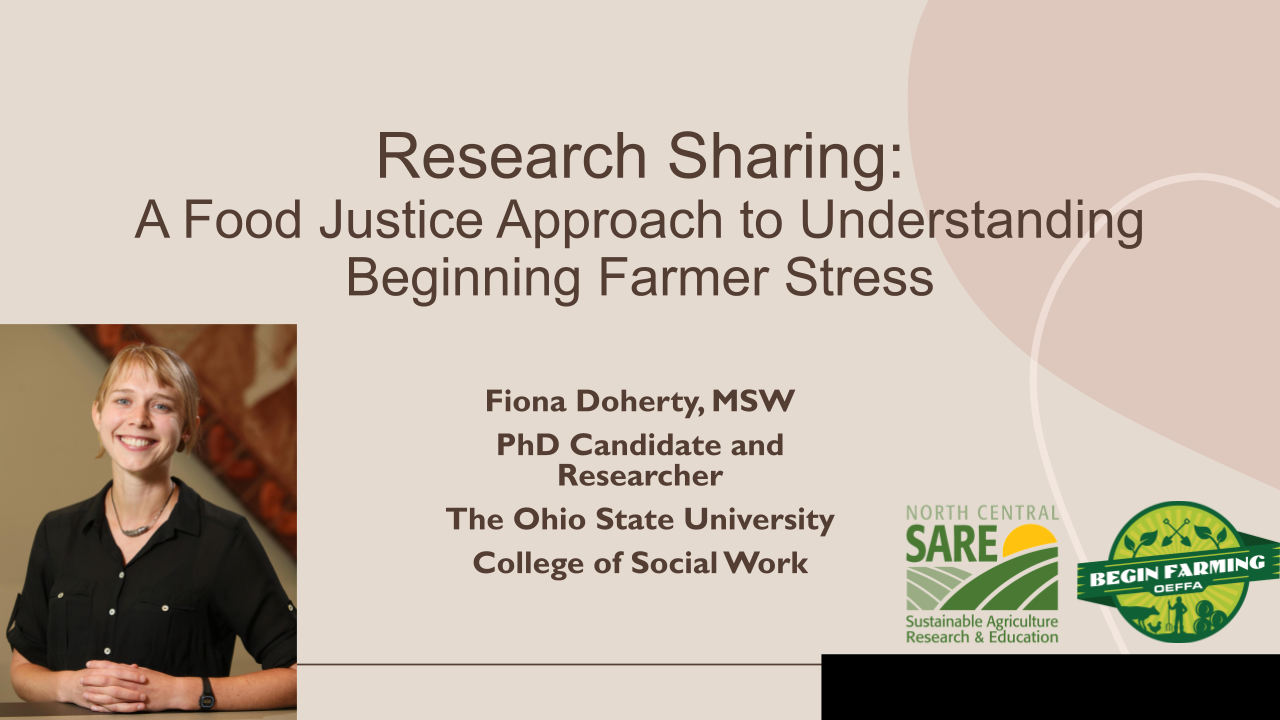
Published: Tuesday, December 12, 2023
Attendance/ Credit Information
Nutrition as a Pathway to Recovery
The relationship between nutrition and substance use is complicated. Nutrition can either help or hinder recovery. In fact, food can become an addiction of its own! This workshop aims to provide participants with a comprehensive understanding of the role of nutrition in substance use recovery. More specifically, we identify common nutrition-related challenges faced by those in recovery, explore practical strategies for supporting and improving nutrition, and consider the impact of sustained nutritional wellness on long-term recovery. Eat Good, Feel Good. Feel Good, Do Good!
Session Objectives
Identify opportunities for access to wellness services
Resources
ACE’s and Trauma Mitigation as Prevention
This interactive presentation will provide discussion regarding the impact of adverse childhood experiences as it relates to three specific cases. We will take an in-depth look at these cases, discuss warning signs that may have prevented the event, and examine how we, as community systems of support, can adjust its efforts. This discussion, related to a collaborative approach to trauma, will help mitigate the growing mental health crisis.
Resources
Childhood Trauma and Coping
Children have a variety of experiences beginning in the earliest moments of their lives. We now know how deeply these moments can impact their future abilities, strengths, and relationships. Both positive and negative experiences can set the foundations for our resilience skills and coping mechanisms as we grow. The more our experiences are negative or involve traumatic events, the more we are at risk for developing unhealthy coping mechanisms and outcomes as adults. This session is a discussion of childhood psychological trauma and the impact on a child’s ability to cope, grow, learn, and behave. We will discuss both the stress response system as well as the onset of traumatic stressors by exposure and duration. The session will also examine the possible effects of early exposure to traumatic events on a child’s physical health, emotional health, behavioral health, and the overall risks for maladaptive coping practices in adolescence and adulthood.



